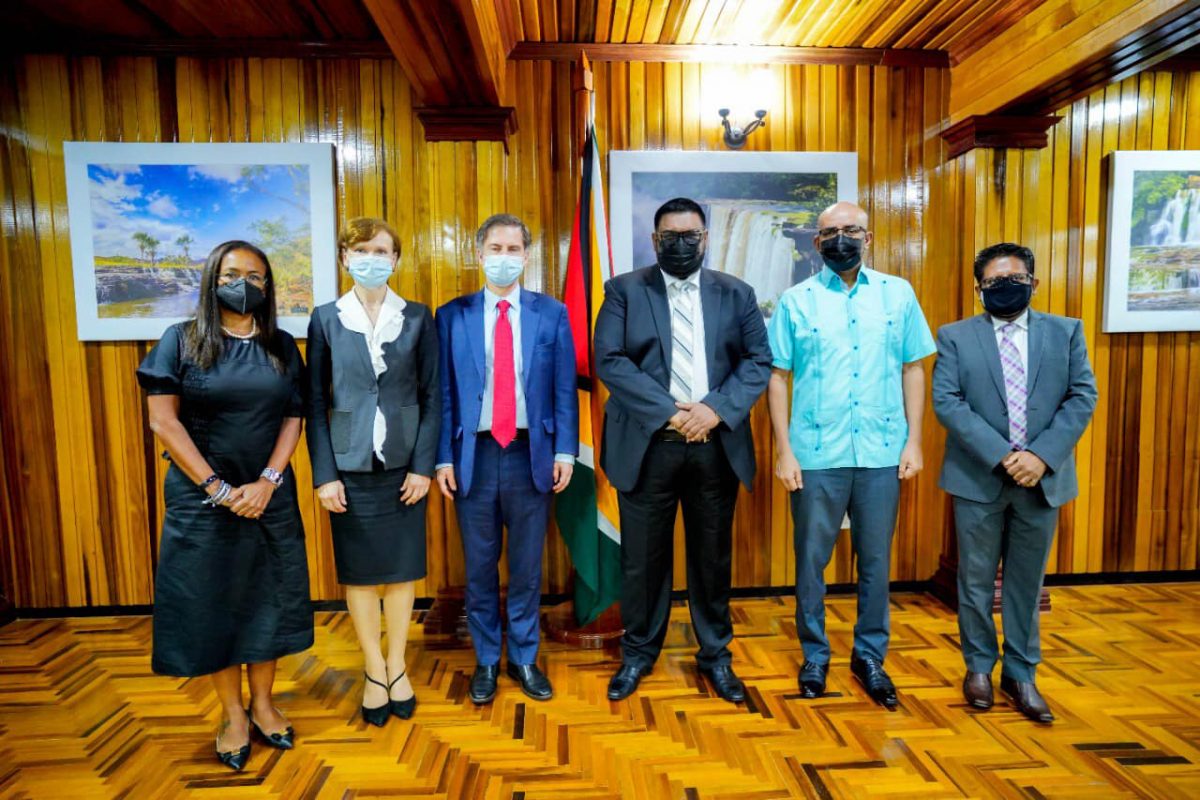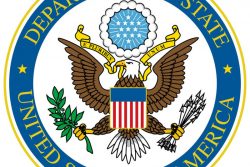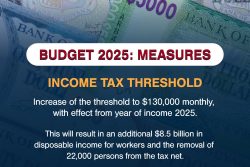World Bank Vice President for Latin America and the Caribbean, Carlos Felipe Jaramillo and Country Director for the Caribbean, Lilia Burunciuc, completed their first official visit to Guyana yesterday and pledged to make a real impact on improving the lives of people here.
A release from the World Bank commended the progress made by the government towards COVID-19 recovery, noting that over 51 per cent of Guyana’s adult population has received the first dose of a coronavirus vaccine. The two officials also discussed how the World Bank could support the Government’s plan to create a more enabling environment for the private sector and improved living standards for citizens here.
“We are pleased to provide ongoing support for the COVID-19 vaccination efforts in Guyana, which is critical to accelerate the recovery and for equitable growth,” said Jaramillo.
During their visit, the release said that Jaramillo and Burunciuc met with the President of Guyana, Dr. Irfaan Ali, Vice President, Dr. Bharrat Jagdeo and the Senior Minister in the Office of the President with Responsibility for Finance, Dr. Ashni Singh, and other stakeholders including international development partners.
“In our conversations with the country’s leadership, we underscored our commitment to making a real impact on improving people’s lives in Guyana,” said Burunciuc.
She added “I look forward to continuing work with the government on climate resilience, supporting the private sector, and investing in people.”
To see the progress made by some of the projects financed by the World Bank in the country, Jaramillo and the team visited the Westminster Secondary School that was constructed and equipped under the Guyana Secondary Education Improvement Project They also toured pumping stations at Lusignan and Enmore, which were built as part of the Guyana Flood Risk Management Project.
The release said that the World Bank currently has seven active projects in Guyana that address human capital development, fiscal sustainability, disaster risk management, and governance, as well as the mitigation of the impact of the COVID-19 pandemic.










